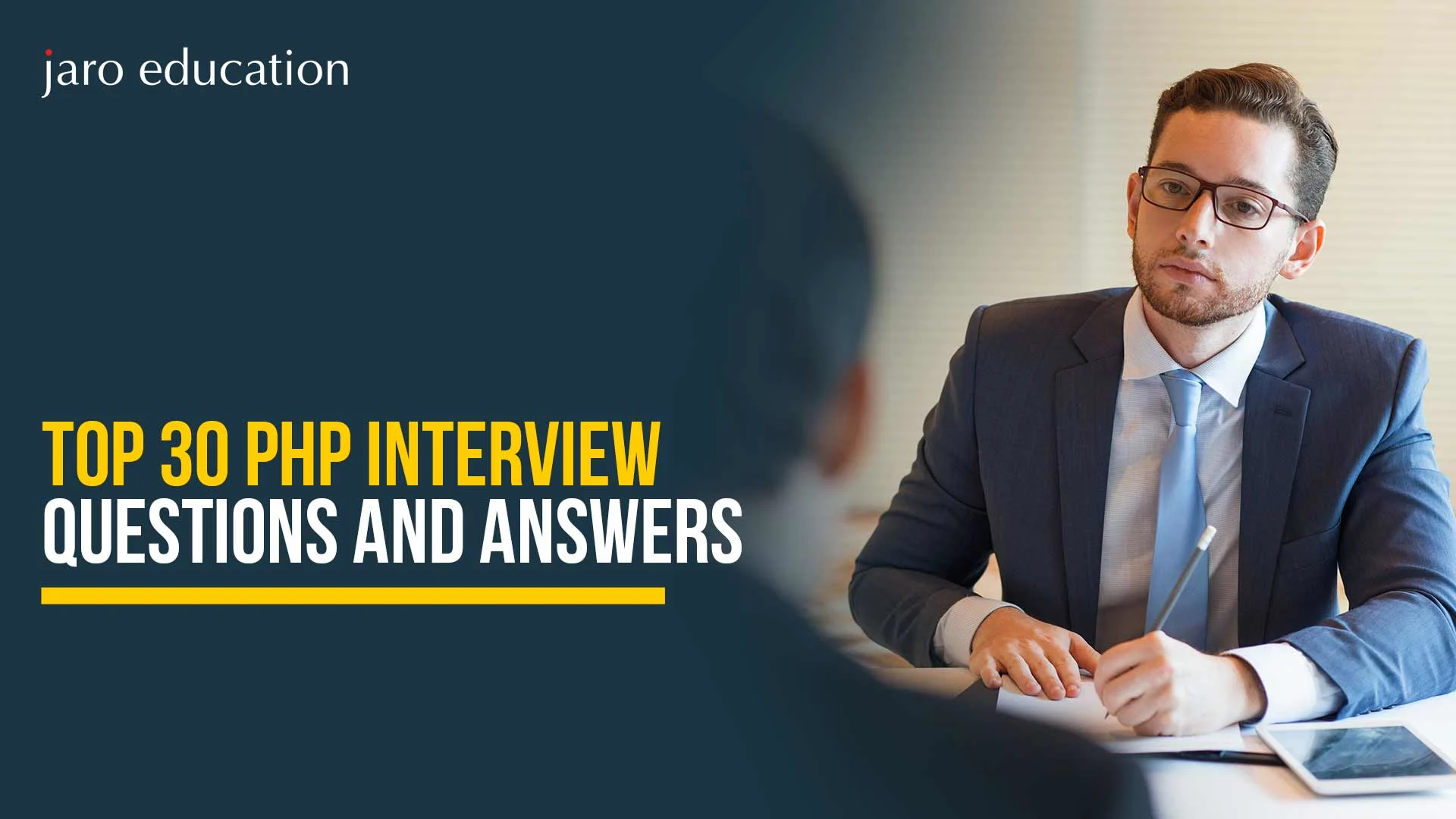Top 30 PHP Interview Questions and Answers

Table Of Content
- Why Learn PHP for Interviews?
- Basic Interview Questions on PHP
- Intermediate PHP Interview Questions
- Advanced PHP Interview Questions
Why Learn PHP for Interviews?
Before diving into the PHP interview questions, it’s important to understand why PHP is still relevant in 2026. It’s versatile, fast, open-source, and well-integrated with many content management systems like WordPress, Joomla, and Drupal. Employers are still actively hiring for roles requiring PHP expertise, making preparation for PHP interview questions a worthwhile investment in your career.
Basic Interview Questions on PHP
Intermediate PHP Interview Questions
Advanced PHP Interview Questions
Final Thoughts
In total, these top 30 PHP interview questions and answers cover everything from basic interview questions on PHP to complex, real-world challenges that seasoned developers face daily. If you’re preparing for a technical interview, this list equips you with comprehensive knowledge to stand out in front of hiring managers.
The PHP developer role is evolving, and in 2026, companies expect more than just syntax knowledge. They want developers who understand architecture, security, performance, and collaboration. Your preparation with these PHP interview questions gives you a competitive edge in landing that next role.
Whether you’re just starting your career or eyeing a leadership position, mastering these PHP developer interview questions can directly influence your growth, responsibilities, and even your future earnings.
Frequently Asked Questions
If you’re preparing for PHP interview questions but don’t have job experience, focus on building personal or open-source projects using PHP. Create a small blog, portfolio, or e-commerce site to demonstrate practical application. Document your process, challenges, and solutions. Employers value initiative and problem-solving just as much as formal experience.
Yes, communication, collaboration, and time management are critical for succeeding in a PHP developer role. Interviewers often assess whether candidates can explain technical concepts clearly, work well with others, and manage project timelines. Being technically skilled is essential, but soft skills can often be the deciding factor between candidates.
While core PHP knowledge is the foundation, many companies now expect familiarity with modern frameworks. Questions related to framework logic, structure, and conventions may complement standard PHP interview questions and answers. Familiarity with frameworks like Laravel can significantly improve your chances in a competitive job market.
To stay current with PHP developer interview questions, follow PHP-related blogs, forums, newsletters, and conferences. Platforms like PHP[architect], Reddit’s r/php, or Laravel News are excellent resources. Also, practising on coding platforms and contributing to GitHub projects can help you apply new concepts hands-on.
Absolutely, if you have experience in languages like JavaScript, Python, or Java, transitioning into a PHP developer role is manageable. Focus on learning PHP’s syntax, data handling, and application structure. Once you’re comfortable with the basics, study typical PHP interview questions to align your existing knowledge with PHP’s workflows.
Find a Program made just for YOU
We'll help you find the right fit for your solution. Let's get you connected with the perfect solution.

Is Your Upskilling Effort worth it?

Are Your Skills Meeting Job Demands?

Experience Lifelong Learning and Connect with Like-minded Professionals


